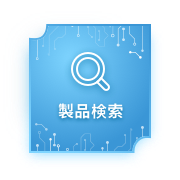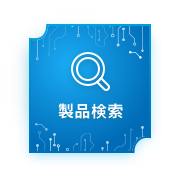


Participation of Stakeholders
Everlight listens to the voice of stakeholders via various communication channels and platforms. Stakeholder suggestions and issues of concern are incorporated into organizational strategies and operational planning. This also serves as a reference basis for the information disclosed in this report. This year’s report uses the five principles of the AA1000 SES Stakeholder Engagement Standards, which were jointly discussed by the CSR Execution Team and external consultants. This report also referred to stakeholder groups within the industry for identification based on dependence, responsibility, influence, diverse perspectives, level of interest and other characteristics. The aforementioned principles are used to analyze and establish the primary communication targets, which include a total of 11 types of stakeholders: employees, customers, contractors, shareholders, suppliers, distributors, government agencies, academic and research institutions, cooperatives and associations, media, and community residents.

Communication with Stakeholders
Everlight has diverse interaction and communication mechanisms with stakeholders, including “welfare committee meetings,” “employee forum,” “supplier surveys,” and “Shareholders’ Meeting.” Through various communication channels with stakeholders, the Company may realize their demands, their expectations towards the Company and the issue of sustainable development that they pay attention to. Apart from instant response, the Company will also take these opinions as the reference for sustainable CSR development programs.



Identification of Major Issues
Through diverse communication channels with stakeholders and with reference to the 33 sustainability perspectives of economics, society, and environment in GRI Standards, the sustainability issues concerned by stakeholders, Code of Conduct – Responsible Business Alliance (RBA), Social Accountability 8000 International standard (SA8000), Everlight CSR performance indicators as well as the issues on “Patent,” “None-use of conflict minerals,” “Integrity operation,” “Image of sustainable enterprise,” “Green product,” and “Climate change and greenhouse gas,” Everlight collects and summarizes 39 sustainability issues and edits them into a questionnaire. Everlight analyzes the priority of sustainability issues that stakeholders pay attention to in accordance with “stakeholder level of concern” and “level of impact on corporate governance” and takes the direction of sustainable operations for Everlight and the overall development of the company into account in accordance with the steps of sustainability context, importance, integrity and tolerance of stakeholders. The company collects 17 significant sustainability issues as the Everlight social responsibility policy and annual operating goals. Compared with 2018, the “integrity operation” and “green product” were added to the significant sustainability issues and the “occupational safety and health” was removed.
Everlight introduced materiality analysis in its 2019 CSR report, hoping to effectively communicate with its stakeholders and improve the sustainability of operations through systematic analysis models, identifying topics that stakeholders are interested in and disclosure of information. Everlight also efficiently communicates with stakeholders efficiently to continue to improve the sustainable performance of operation. To enable the information disclosed in the sustainability report to meet the needs of stakeholders, five main steps are taken to determine the major sustainability topics and they are “Identifying stakeholders,” “Collection and induction of sustainability issues,” “Survey of Attention and Impact on Topics,” “Significance Analysis and Identification” and “Review and discussion.”
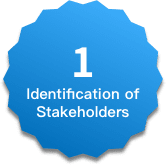
Everlight idenifies eleven types of stakeholders, including employees, customers. contractors, shareholders, suppliers, distributors, govem mment agencies, academic and research institutions, cooperatives and associations, media, and community residents through the internal discussion within the CSR Execution Team as well as taking the stakeholder groups identified by other companies.
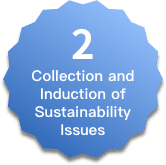
The collection comes from external and intemal sources. The external sources include sustainability reports published by Global Reporting Initiative (GRI). 33 sustainability issues based on the GRI Standards are first selected, and then the 'patents," "none-use of conflict minerals, " integrity operation," "image of sustainable enterprise, "green product." and "climate change and greenhouse gas" are added in according to their relevance and Everlight's industrial characteristics to compile a total of 39 sustainability issues that can be used as the design guidelines for attention and impact questionnaires.
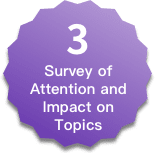
Questionnaires are distributed to conduct the survey of levels of stakeholders' attention to sustainability issues (assessment and decisions affected stakeholders) and impact of the sustainable operation (obvious impact on the economics, society and environment). Thus,they can be used as reference for the ranking of sustainability issues. In 2019, Everlight received 326 copies of question nnaires returned by CSR stakeholders, of which, 276 were about the attention to issues, and 50 (filled in by Everlight's high executives) were on the impact.
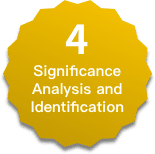
After the anallysis on quest tionnaire, the matrix x analysis was penformed on the soores of the attention on sustainability issues and the impact level of sustainable operation. Topics with a score higher than 3.7 are prioritized and sorted in order. CSR execution team idenified 17 significant sustainability issues and disclosed their management guidelines after the intemal discussion and refeming to data from other industry players.

The value chain regarding the analyzed major signiicant issues was part of the boundary value analysis factors. In the future, Everlight will continue to improve its management and disclose the relevant infomation in its sustainability development report.
Matrix data analysis chart major issues

Value Chain Boundary of Major Issues
The major sustainability issues of the 2019 CSR report were organized into four dimensions of management policies after the analysis, which are “integrity operation and social responsibility,” “continuous innovation and growth,” “well-being and safe workplace,” and “environmental protection policies.” The value chain was also part of the boundary value analysis factors. In the future, Everlight will continue to improve its management and disclose relevant information in its CSR report.

